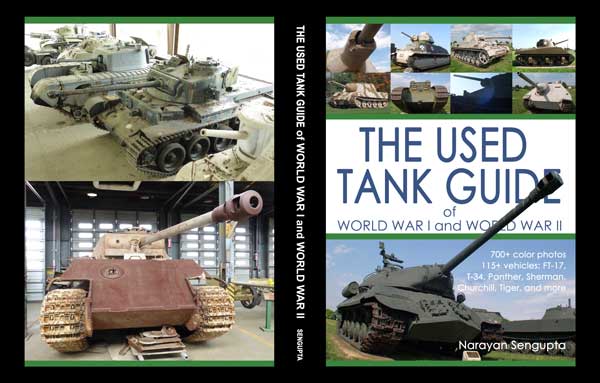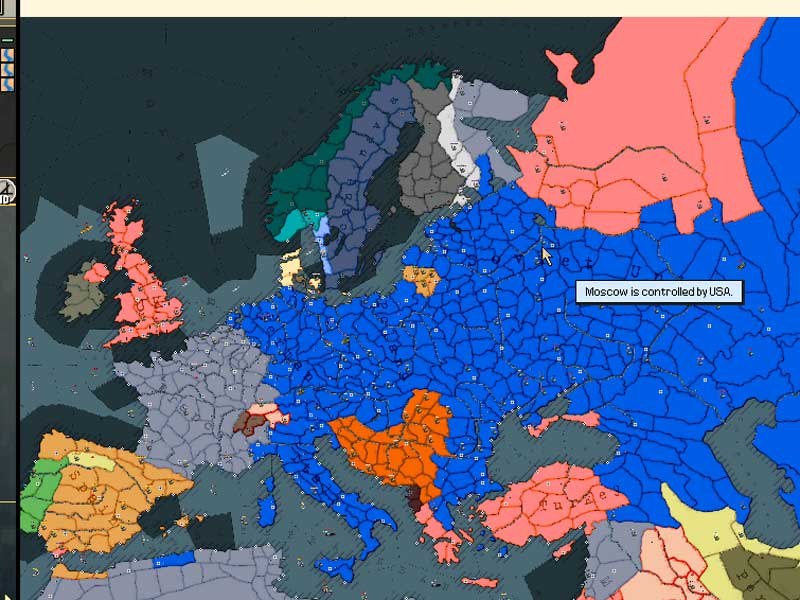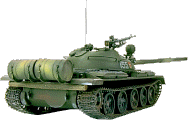October 23, 2001-April 4, 2002
v.1.2
OVERVIEW
The following is a small collection of thoughts on different political topics, including India vs. Pakistan, Gun Control, Hiroshima, and others, when I get time.
ISRAEL and PALESTINE
This is a very sensitive subject. The wonderful starting irony is that the three religions of The Book are, of course, of the same book. The Moslems hold Moses, Jesus, and everyone else to be prophets. They add one more as the final prophet, and that is Mohammed.
I agree that we don't give the Palestinians any respect or, almost, acknowledgement, and that we are extremely one-sided in our handling of the issue.
However, I have friends who survived the Concentration Camps, and it is for them who earlier generations neglected, that the nation of Israel was created.
Israel exists, which no one can deny. The circumstances and the correctness of whether or not it should have been created when and where it was are complex.
Ideally, Israel should have been created somewhere in the breadbasket of the US on some of the greatest land in the world in an environment which would have been very happy to see those fleeing Nazi persecution, etc. But that would have meant donating our land. The bottom line is that it was much easier donating someone else's.
I have friends on both sides of the issue, and this is a subject which I get nervous debating. Perhaps at some point, both sides will realize that they are the same people (Semetic, etc.) and go back to the happy and symbiotic relationship they had from time immemorial.
INDIA VS. PAKISTAN
This is a very tough issue, with heated emotions on both sides. At the center of the issue is the Indian state of Kashmir and the breakup of India in 1947. I have been to India many times. From speaking to many people over there, I don't think that India has any desire to roll over anyone's borders. Pakistan has rolled into India twice and China has rolled into India once as well, all in the past 50 years. India naively had a 100,000 person military based on Gandhi's non-violent idealism, though this was very well-intentioned. Kennedy and Atlee helped save India against China.
India has to fear Pakistan and China. China's forces absolultely dwarf India's (e.g. 5300 combat aircraft vs. 600), and Pakistan's are almost the same size as India's. Both China and Pakistan still occupy parts of India (Kashmir) and, from India's perspective, Pakistan actively has been promoting terrorism there for the past 20 or so years to the tune of about 15000 (?) killed to date.
Pakistan's separation from India is analogous to the Confederacy's breakaway from the Union. Is that a renagade "province"? I don't know. I think that what is done is done, and the people of both countries desire a true and lasting peace.
A very brief background. India is one of the world's oldest societies. It has roots that easily go back 4000 years. Unlike Mesopotamian or Egyptian civilizations which have virtually no links to their spectacular heritages, Indian (and Chinese) civilizations stretch back unbroken to their roots.
I don't have the exact dates in front of me, but the rough chronology is as follows:
Again, I don't have exact figures in front of me, so please feel free to take all of my "statistics" with a grain of salt. India was founded as a secular state. It has about 80% Hindus, 10% Moslems, 3 to 5% Christians, and the rest are Sikhs, Jains, Jews, Buddhists, etc. Pakistan is an Islamic Republic, but also has about 1% of other faiths. India has more or about the same number of Moslems than Pakistan. India has had Moslems in very high positions within the federal government, including President and head of the Armed Forces.
While idiotic Hindu nationalists have committed a series of stupidities against Moslems (violence and destruction of a mosque near Delhi) and against British culture (renaming Bombay, Madras and Calcutta) over the past five or ten years, generally speaking Indians are very open and tolerant of one another, especially in the area of religion. When Zorastrians and Jews fled from the Middle East during the Middle Ages, they went to India. Hinduism, the dominant religion of India in the way of numbers, has no tradition of prosletyzing or of any "absolute truth". This means that, for instance, while my family is Hindu, my aunt will often go pray to Mary and my father knows many of the Moslem prayers. The most famous epoch of Indian history was under the Moslems. It was the great Moguls who were the envy of the world. Akbar was the greatest, but it was his grandson Shah Jehan who built the Taj Mahal for his wife as his tribute to their love. So in spite of some idiots, there is a great deal of religious tolerance and diversity, perhaps more than any other nation.
Until September 11, the U.S. has turned a blind eye to the terrorism in Kashmir that has been sponsored by organizations related to Osama Bin Laden. While the U.S. 3,000 killed in the heinous attacks of September 11, 2001, India has seen around 15,000 to 20,000 killed. I feel that to grant Kashmir to Pakistan would be analogous to giving Texas or California to Mexico or giving the Shite Moslem parts of Pakistan independence or the right to join Iran. But in the end, none of this matters. The bottom line is that there is no amount of bloodshed over Kashmir that can lead to positive results.
What the people of India and Pakistan need to remember is that ethnically and culturally, they are one people, no matter what the national borders are currently. It is only religion that separates them. Even if they weren't one people, conflict between the two would be banal.
A small aside about the Swastika:
It has been used in many places by many people (about half of the world's population) who did not use it as a decorative image. It is a 4,000+ year old, very holy religious symbol to all of the world's Hindus and Buddhists and other Asians and is equivalent to the Cross for Christianity or the Crescent for Islam.
It also shows up in other cultures and other religions, and even at the Wailing Wall (?) or somewhere else in Jewish literature.
The name Swastika is Sanskrit (from India) as are other related terms such as Aryan. It is a symbol of good health and good luck. Why Hitler had to use it is beyond me and is tragic.
You will still see it all over much of the world, such as at the entrances to hospitals, etc., though it has no evil meaning (except when in use by Nazis and Neo-Nazis and other hate groups - who also use the Cross for some perverse reason).
GUN CONTROL
I am very reluctant to write anything here because I feel like I am walking into a firefight that is well in progress, and because my views are diametrically opposed to just about every one of my friends.
However, I do want to point out a few things. I am not saying that I'm right or anything, but please consider:
The Founding Fathers provided for guns. They didn't provide for Assault Guns, Gattling Guns, modern rifles, etc. They didn't foresee how incredibly fast guns would evolve. I posit that their intent was not to allow guns the way they are now (and, of course, technically speaking, they didn't). But anyone who believes in Original Intent should probably carry around a musket to be in compliance.
Guns are different from most other devices which can be used to hurt and kill people, such as knives, cars and rubber bands.
- Guns kill when they function exactly as designed.
- Their primary purpose is death or wounding.
- Guns can be used to kill from a distance. Technically, a knife could be thrown at someone, but I've never heard of a drive by kniveing.)
- Guns can kill repeatedly and quickly. Again, it is very unlikely that a knife will be used to kill two people in rapid succession (but as the O. J. case proved, it can happen). Three is virtually impossible.
- Guns are very impersonal as a killing mechanism.
At what point does self-defense overcome my right to personal security?
At what point does the right to carry guns not conflict with the right to carry napalm or NBC weapons?
Doesn't it logically follow that if we have the right to carry guns, then we have the right to carry a flame thrower, etc.?
August 6, 1945: Hiroshima: Was it Justified?
Every year, on August 6th, I think about this day. As a history buff, I feel that no one else wonders about the import of the date. But to me the date is an ominous one, and makes me wonder about the past and about things to come. So far, though we have opened Pandora's Box, nothing has come out. And at different times in my life, I have felt variously that the bombings of Hiroshima and Nagasaki were abhorent, justified, the only way to go, and not needed at all.
I thought that I would ask you guys what you all thought as well. I feel that most of us here are non-Japanese, and thus the results will probably be biased, but then again, there are several of us here who are living in Japan and others of us here who are of German or Italian heritage (and thus are probably slightly more inclined to sympathize with being on the receiving end of heavy bombardments).
I know that as history buffs, we often forget that the words we toss back and forth are representative of sentient human beings (and other creatures such as horses), and we often forget the death and destruction of the lives that aren't represented (i.e. civilians). In other words, we often forget the moral dimensions of war.
So here is the question, subject to revision and more precision:
How do you feel about the bombing of Hiroshima and Nagasaki? Was it justified? Was it necessary? Or would the Japanese have surrendered anyway? Or perhaps we could have dropped the bombs and had them explode out to sea, but within eye-sight of the Imperial Palace in Tokyo?
This is a touchy subject, but here are the different views that I feel are representative of us as Americans and citizens of the world.
- The bombings were 100 % justified; no apologies needed.
- It was sad, but it wasn't any worse than what we were doing to Germany.
- It needed as a warning to the Soviets, to end the war, and to avoid a costly invasion.
- The bombs should never have been dropped since the Japanese were probably going to surrender anyway.
- The bombs should never have been dropped whether or not the Japanese were going to surrender.
I think that in general, most of us feel that the atomic bombing of Hiroshima and Nagasaki was justified for retaliation and because it has, perhaps, deterred others from doing the same, but would we still feel the same way if the Germans had bombed New York and Washington, with the end result of deterring nuclear war until the present day? Probably not. Would we have been willing to use atomic bombs if we felt that the Japanese would retaliate in kind? Probably not. Our willingness to go to war is in inverse proportion in our understanding of our potential opponent's ability to retaliate, especially in nuclear exchanges. I have made the same point here as well in face to face conversations on numerous occassions, and even asked President Carter that once when he was lecturing my class.
Also, using the same logic of using hindsight to justify the actions of the past, can we then say that we should be happy that Pearl Harbor was bombed because it led to the US becoming the most powerful nation in the world?
Were the atomic bombings of Hiroshima or Nagasaki any different from the fire-bombings of Hamburg and Dresden, etc.? I think so. The tool used is a very important part of this issue because it opened Pandora's Box and held the world hostage for 50 years and probably will for the rest of our lives and for generations to come, even though the apparent danger has subsided for the past decade or so. I also feel that the level of destruction was quite justified against Dresden, Tokyo, etc., because we had a very strong enemy at that point. However, by the time of Hiroshima or Nagasaki, I feel that an atomic bomb "demo" probably could have done the job, and we would still hold an unblemished moral high road. While our history is frought with incredible travesties against the American Indians and slaves, etc., we have done so much that is great as well. And this (past) century and especially all of WWII from the US perspective would have been even better without the blight of nuclear carnage.
I waffle on the justification back and forth all the time. I don't think that it is an easy dilema. The tangential questions are whether or not all is fair in love and war, and should we have behaved in the same way that "the bad guys" behaved? I think that we could have gotten the same end result without killing so many, probably by doing a demo.
Many say that it the atom bombs were necessary to scare the USSR. If we had wanted to scare the USSR, why not attack IT with nuclear weapons?
In the end, I think that the greatest argument that can be used to justify the atom bombs was retaliation and vengeance, pure and simple. The Japanese were on a bloody rampage that led to terrible things such as the Rape of Nanking (200,000+ killed savagely in about six weeks), Pearl Harbor, the Bataan Death March, etc. The other part of the justification was to present the Japanese with a super-weapon which they couldn't comprehend to force a rapid surrender and save lives. It was only a weapon of such unknown variables that could have scared the Japanese into final submission and prevented an Iwo Jima-type invasion and subsequent defense of the Japanese homeland. Ironically, we certainly saved more Japanese lives (not to mention American ones), by killing so many in those two cities. I don't think that U.S. foreign policy should be dictated by a "He did it first" policy, and I do feel that the U.S. did an astounding job of taking the moral high road during WWII. While I personally wish that we hadn't used atom bombs, I do understand the justification for using them.
Did the Soviets Really Fight in WWII?
Did the Soviets really fight in WWII?
Is there a bias against the Russians? It seems like so many books I read mention great expoits by Americans and Germans (especially Americans and Germans), to a great extent the British, a token nod to the French and the Italians, but nothing regarding the Russians. There is nothing regarding the Japanese either.
For example my book "Heroes of World War II", by Robin Cross, has 26 chapters with 26 "heroic" exploits by the Americans (10.5), the Germans (5), the British (8.5), the French (1) and the Italians (1), but none for the Russians or the Japanese. Did they not have heroes?
The 100 Most Influential People of WWII lists Zhukov at about number 26. Say what? The guy practically single-handedly did more to defeat the Germans on the battlefield than anyone else.
I can kind of understand our bias against the Japanese of WWII. But why is the surprise naval raid on Taranto heroic, but not the surprise naval raid on Pearl Harbor? Is it because the Japanese were the bad guys? If that is the case, then why are attacks by the Germans treated as heroic? How can taking Eben Emael or Monte Cassino be any more heroic than retaking Stalingrad? Where is the story of the KV-1 tank that single-handedly held up a German brigade (or something) for two days at the beginning of Barbarossa?
Our press is so biased against the Russians, one would think that "they barely helped America win the war". We tend to think that we did all of the work. Never mind that we weren't even in the war the first two and a quarter years. Of course, those of us here know that the Germans lost 90% of their men against the Russians. We know that the Russians sacrificed everything, but still they barely get a mention. The carnage that the Soviet troops suffered is astounding in scale and incredibly sad.
The Heroes book doesn't mention them. My college textbook "Short History of WWII" by James Stokesbury only has two chapters on the Ostfront. The otherwise excellent "Clash of Wings" devotes about 26 pages (out of 380) to the Ostfront. My beautifully illustrated $50 book on fighters (which I got on sale for $15) has nothing on Russian aircraft. Several other books I have also only have one chapter or almost nothing on the Soviet contribution to the war.
However, my bookstores stock books on the Waffen SS, even though they are such nasty #%$*s. It has lots of books on Hitler or about Hitler's Generals or many illustrated guides on German tanks or infantry. It's like people forgot quite a few things...
So what gives? Why the bias?
Regarding Pearl Harbor: The Japanese saw it as heroic. I don't think that it was very traumatic for us, but still, objectively speaking, it was an amazingly successful attack even if many things, such as sinking the CVs and destroying the oil tanks. What about a declaration of war? A declaration of war is just a formality. The US should have anticipated some kind of armed conflict with Japan, and was, in fact, taking steps to prepare for war. And the US was certainly taking steps to precipitate the war. As a further example of bias, the US defense of Corregidor is one of the heroic accomplishments. But Iwo Jima isn't.
The psychological impact was very real, and, of course, we are all much more aware of what the WWII generation felt now that we have gone through the same thing on a smaller scale with the WTC/Pentagon attack.
But, as in the WTC/Pentagon attack, I don't think that a prefacing of a declaration of war would make the attack any less painful or angering.
Anyway, this is not too huge of a point in my mind, and I am inclined to agree with you. But I think that this is a real case of bias, just as the Iwo Jima/Corregidor example. Keep in mind that I'm not going to be all that inclined to call anything that was done against us as heroic either. But that's kind of my point to begin with: German exploits committed against us (or our Allies) are continuously glorified, and we all seek out more and more information on them. After all, we are all playing "Panzer General", not "Tank General". I have done the same over and over as well. I used to love the Bismarck: It was my favorite ship in the world (though Steve will never believe that! ). I always liked German tanks, and planes.
It's just that now, as my awareness has hopefully increased, it seems like that we are still over-glamorizing what was done against "us", and totally ignore our own Ally - the USSR/Russia - who defeated our primary enemy.
I go to the bookstore and see Wittman's bio, or bios by German generals or a large glossy book on the Waffen SS (which barely shows any of the horrific things they did in a negative light or at all), etc.
Cheers,
Narayan

 Home
Home Hearts of Iron
Hearts of Iron








 French Military Victories...
French Military Victories...